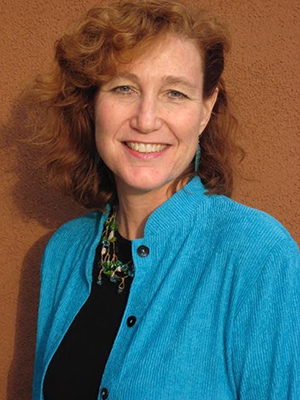Hillary Hutchinson earned a MA in social anthropology and a MEd in higher education administration from the University of Texas at Austin. She’s a career coach who specializes in academic writing and transitioning out of academia. Find her online at The Change Strategist and follow her on Twitter @CoachHillary.

You left your PhD program before finishing. Why?
I was pursuing a PhD in higher education administration at a university that required its high level administrative staff to have PhDs. As I went through the course, I began to realize that obtaining this degree would not necessarily help me get the kind of work I really wanted (a.k.a. I would always be a second-class citizen in the world of academia because I did not have a “real” academic degree like linguistics, classics, or whatever). I kept slogging along, getting through exams, until I finally ended up in the hospital with adrenal burnout. That was the wake-up call of the universe hitting me in the head to say, “You are on the wrong path.”
What did you hope for in terms of employment?
Before I left the PhD program, I thought I might be able to get a job as a director of an academic center, but it became clear that was not possible.
What was your first job following grad school?
Well, that’s a trick question because I have graduated twice with master’s degrees. First job after the MA in anthropology was as a research associate in a consulting firm working on U.S. and world policy issues around the disposal of nuclear waste. After I graduated with the MEd, the first job was as an executive assistant to the director of a humanities institute that had so many different programs, I could hardly keep them straight.
What do you do now?
I am a career coach specializing in helping people in academia either get their writing done in order to advance through the tenure process, or help them find an alternative career to academia if they decide to leave. I love helping career changers. Many people need help telling their new story in a positive way, showing that the current direction is built on past experiences.
What kind of tasks do you do on a daily and weekly basis?
Every day I have 1 to 3 coaching calls, which I do in the morning. (I’ve had 4 to 5 on occasion but that can be exhausting, and then I don’t serve my clients well.) In the afternoon, I answer emails and read the daily updates from higher education publications. I write as much as possible, at least a little every day (something I advise my clients to do, so I have to practice what I preach!) preparing my monthly newsletter, updating my website to add new items like laser coaching, and navigate Create Space [self-publishing platform] as I convert e-books to hard copies. I also have a writing partner I meet with once a week via Skype (we are on our second major project). I also use afternoons and evenings to do mastermind group and International Coach Federation accredited calls with other coaches to continue to improve my skills, and to read books on coaching. I am especially interested in the neuroscience and positive psychology reasons behind why coaching works.
What most surprises you about your work?
Hmm . . . interesting question. Probably how easy it has been to work with clients in different time zones. Using Skype, I have had clients all over the United States, Canada, Austria, Switzerland, Afghanistan, France, England, Mexico, Turkey and Australia. My motto has been: “If you can speak English, we can work together.”
What do you like best about your work?
The interesting people I get to work with: the people that want to work with me tend to be smart, interested in a lot of different things, willing to put energy into changing and open to possibilities.
What’s next for you, career-wise?
Writing a book called Get Your Writing Done! and getting paid as a motivational speaker. I’ve done a lot of speaking for small local groups, and have surprised myself by how much I have come to enjoy speaking. It’s really fun to create a good rapport with an audience and get them to participate in a conversation about truly life-altering experiences.
What advice or thoughts do you have for post-MAs and -PhDs (and -ABDs!) in transition now?
Stay open to possibilities and network, network, network! Informational interviews are great for both discovering if you are a good fit, and for finding pathways that may branch off from the original contact that you never even considered. Think about career change as a lateral move and that will make it considerably less scary.
